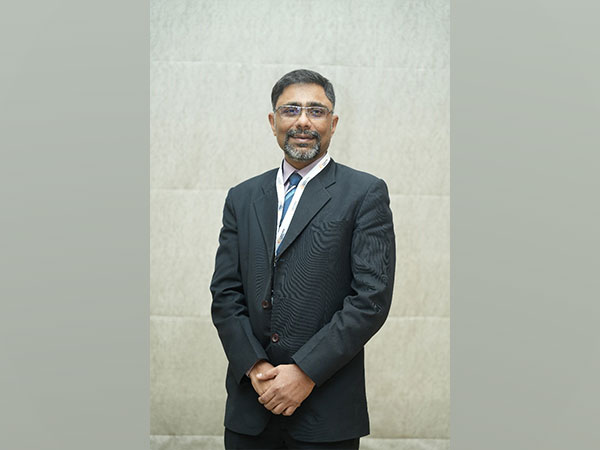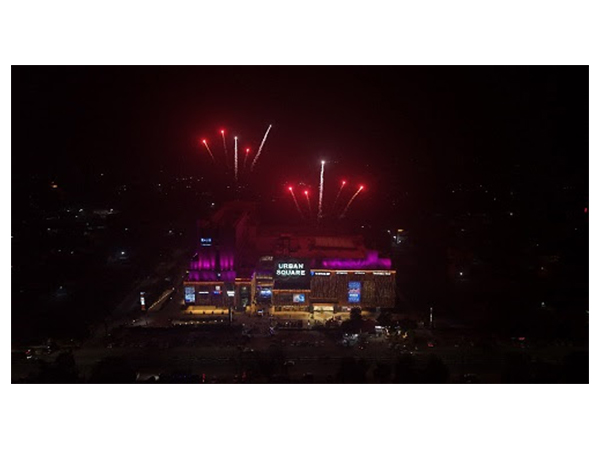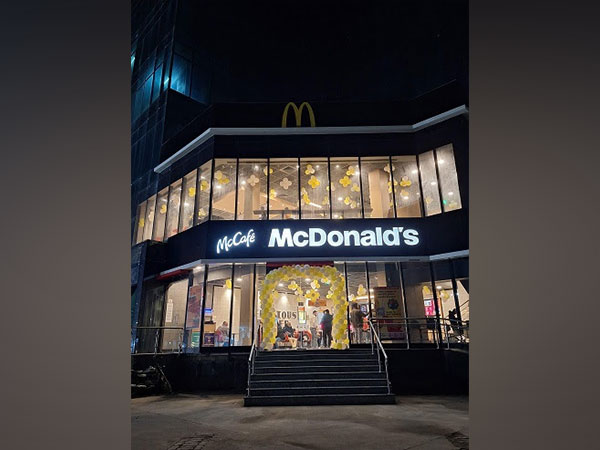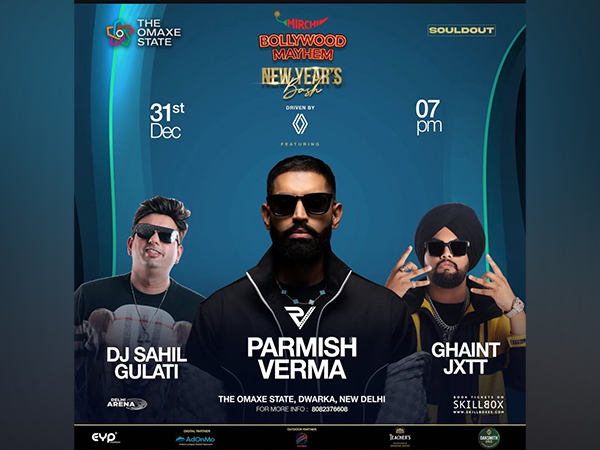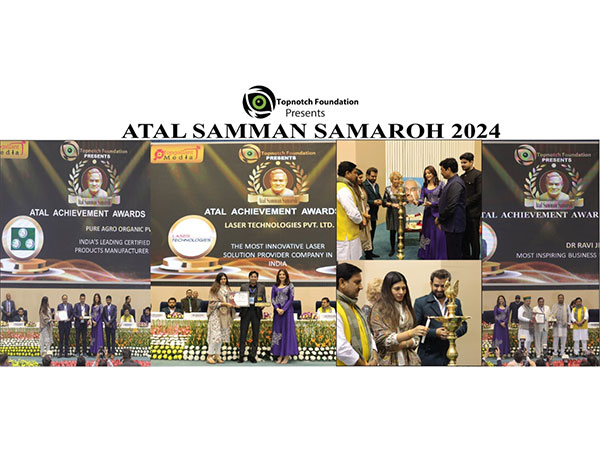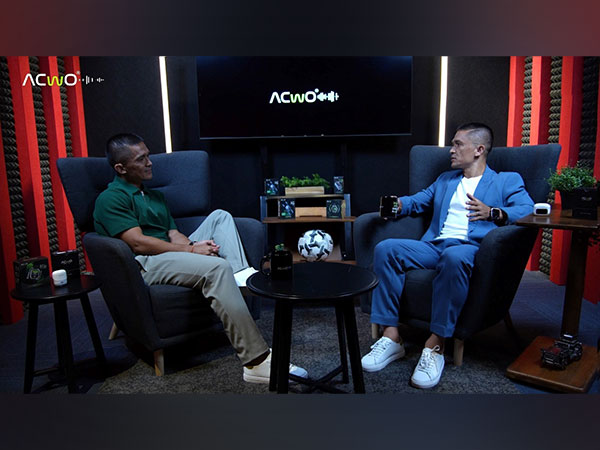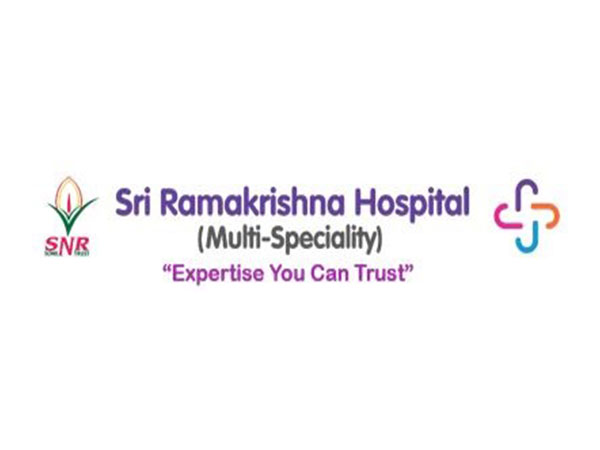INOVR® Wins Asia Leadership Award for Outstanding Contribution to Pharmaceutical L&D: Dr. Subrata Chakraborty Celebrates a Landmark Achievement for the Industry!
Dec 18, 2024
VMPL
New Delhi [India], December 18: Upon receiving the Asia Leadership Award for Outstanding Contribution to Pharmaceutical Learning & Development (L&D), Dr. Subrata Chakraborty, Founder & CEO of INOVR®, credited his dedicated team for their collective effort in creating transformative solutions that address the pressing needs of the pharmaceutical industry, particularly in enhancing workforce capabilities.
Dr. Chakraborty remarked, "We at INOVR® are truly humbled to receive this prestigious award. This recognition stands as a testament to the passion and dedication of our team, who constantly strive to innovate and deliver transformative solutions. It also marks a significant milestone for the pharmaceutical industry, which is making impressive strides in bridging skill and knowledge gaps by embracing advanced technologies like Virtual Reality. We are excited to continue our mission of revolutionizing learning and development within the sector."
Known for his dynamic leadership and passion for empowering the pharmaceutical workforce, Dr. Chakraborty is driving a mission to upskill the industry, ensuring the highest quality standards and defect-free medications for people around the world. We had the privilege of sitting down with him for a brief interview during the awards ceremony, and here's what he had to say.
Interview with Dr Subrata Chakraborty, CEO of INOVR®: A learning experience that counts!
Q1: What inspired you to step away from well-paid job at multinational companies and think outside the conventional career path?
Answer: After spending over two and a half decades in the pharmaceutical industry, I experienced both the highs and lows, triggered by the cost pressures, evolving regulatory expectations, and increasingly stringent guidelines. These challenges made me deeply interested in understanding the science behind what we do and how it could be leveraged to address some of these issues effectively.
I realized it was time to contribute to the industry on a larger scale--not just by benefiting a single company but by making an impact that could help the industry as a whole. It felt like the right way to give back to the very industry that shaped my career and gave me so much.
By then, I actually had already started collaborating with globally renowned experts on various technical projects aimed at bridging the gaps between regulatory guidance and practical implementation. Together, we published several research papers, developed various technology applications, and contributed to industry guidance and best practices. These efforts reinforced my belief that I could play a greater role in driving innovation and addressing the challenges faced by the pharma sector.
Q2: Can you briefly introduce INOVR® and its mission?
Answer:
In today's pharmaceutical industry, shop-floor capability gaps have emerged as a significant concern. These gaps create vulnerabilities in processes, often resulting in critical failures or remaining undetected until they escalate into market complaints or regulatory observations. Such issues not only cause substantial financial losses but also severely damage a company's reputation.
It is now evident that traditional training methods for shop floor employees are largely ineffective, serving more as formalities than as meaningful tools for performance enhancement. INOVR® was founded to address this pressing need and to enhance workforce competence across the industry. Our mission is to bridge knowledge and skill gaps by leveraging cutting-edge Virtual Reality (VR) technology and AI-powered tools. We aim to deliver immersive, hands-on training solutions that improve learning retention, significantly reduce human errors, and, in turn, enhance product quality and patient safety.
At INOVR®, we are committed to transforming the pharmaceutical industry's approach to training and employee performance evaluation, ensuring personnel are thoroughly prepared before being deployed in critical operations.
Q3: What inspired you to introduce VR technology into the pharmaceutical training domain?
Answer: In the pharmaceutical industry, where we are in the business of saving lives, precision is non-negotiable. Even a small lapse by an operator at the shop floor, despite working with state-of-the-art automated systems, can lead to catastrophic consequences. Yet, human error continues to be a leading cause of failures in our plants.
The core issue lies in the lack of understanding of the risks and hands-on practice and skill-building in traditional training curricula. Methods like classroom sessions and SOP-based instructions often fail to fully prepare employees for the real-world complexities of the shop floor. This is where VR technology becomes a game-changer. It allows us to create immersive, risk-free environments where employees can gain realistic, hands-on experience, bridging the critical gap between theoretical learning and practical application.
Industries that demand high precision, such as aviation, embraced VR technology years ago to train their workforce effectively. It's time for the pharmaceutical industry to recognize the immense potential of this technology to enhance training, minimize human errors, and ensure better outcomes for both companies and patients.
Q4: What challenges did you face while introducing VR technology in the traditional and compliance-driven pharmaceutical industry?
Introducing VR technology into this traditional compliance driven industry is certainly not without its challenges. One of the primary hurdles is skepticism from stakeholders. Many industry leaders are initially hesitant to embrace advanced technologies like this, often viewing it as a luxury rather than an essential transformative tool capable of addressing critical issues such as human error, skill gaps, and operational inefficiencies.
Another significant challenge lies in aligning with the industry's stringent regulatory frameworks. The pharmaceutical sector demands robust documentation, validation, and clear evidence of effectiveness for any new system. Leveraging our extensive experience in this industry, we have been able to demonstrate that INOVR® training modules not only meet but exceed these requirements, seamlessly integrating into existing quality management system.
Through continued patience, education, and by demonstrating the tangible benefits of VR training, we are gradually gaining the trust of the industry. While challenges persist, we are proud to see more organizations recognizing the value of VR and embracing it as a vital component of their workforce training programs.
Q5: How does INOVR® address the cost concerns of companies, especially smaller pharmaceutical businesses, when adopting such advanced technology?
At INOVR®, we understand that cost is a significant concern, particularly in generic pharmaceutical businesses. To address this, we have designed our solutions to be cost-competitive while ensuring top-tier quality. One of our key advantages is that all our modules are proudly Made-in-India, which allows us to keep production costs low and pass on these savings to our customers.
Additionally, our VR-based training modules are designed with scalability and flexibility in mind. Companies can adopt the platform in a phased manner, starting with specific high-impact areas and gradually expanding its use as they see measurable returns on investment. This modular approach helps reduce the upfront cost burden.
Moreover, the long-term value of our technology cannot be overstated. By reducing human errors, improving operational efficiency, and ensuring compliance, our training solutions lead to significant cost savings over time. These benefits, coupled with shorter payback periods, make INOVR® an accessible and viable option even for smaller pharmaceutical businesses.
Q6: How do you see INOVR® evolving over the next 5-10 years?
At INOVR®, we are committed to continually evolving and pushing the boundaries of innovation that can mitigate emerging challenges in the pharmaceutical industry. Over the next 5-10 years, we envision INOVR® becoming the go-to platform for immersive learning, recognized globally for revolutionizing how pharmaceutical companies address skill gaps and workforce readiness.
A key area of our evolution will involve the broader integration of advanced technologies such as Artificial Intelligence (AI), Iris recognition, and haptic feedback into our training modules to further enhance the learning experience. For instance, AI-driven analytics will enable us to offer highly personalized training plans, track individual progress, and deliver real-time feedback, ensuring better skill retention and measurable performance improvements.
We also plan to expand our solutions to support a wider range of pharmaceutical functions, including Engineering, Health and Safety, and Human Resources. Additionally, geographic expansion remains a priority. While we have already established a presence in regions outside India, we are focused on penetrating new markets, particularly in emerging economies, where the demand for cost-effective and advanced workforce training solutions is rapidly growing.
Dr Subrata Chakraborty can be reached at:
Subrata.chakraborty@inophar.in
linkedin.com/in/subratac
website: https://www.inovr.org/
(ADVERTORIAL DISCLAIMER: The above press release has been provided by VMPL. ANI will not be responsible in any way for the content of the same)
